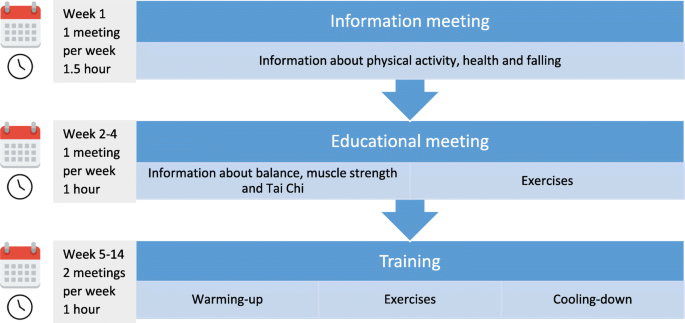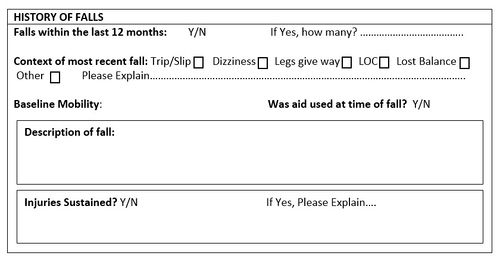Some Known Details About Dementia Fall Risk
Some Known Details About Dementia Fall Risk
Blog Article
The Ultimate Guide To Dementia Fall Risk
Table of ContentsExcitement About Dementia Fall RiskRumored Buzz on Dementia Fall RiskThe Definitive Guide for Dementia Fall RiskHow Dementia Fall Risk can Save You Time, Stress, and Money.The 8-Minute Rule for Dementia Fall Risk
You could be nervous since you've had a loss before or since you've noticed you're beginning to really feel unsteady on your feet. You may have observed changes to your health and wellness, or just seem like you're reducing a little. Whatever the factor, it isn't uncommon to become careful and shed self-confidence, and this can quit you doing things you utilized to do and make you really feel a lot more isolated.If you've had a loss or you've started to really feel unstable, tell your physician also if you really feel great or else. Your medical professional can inspect your balance and the way you stroll to see if improvements can be made. They may have the ability to refer you for a falls threat assessment or to the falls prevention service.
This details can be gotten through meetings with the individual, their caretakers, and an evaluation of their clinical records. Begin by asking the private about their background of drops, consisting of the regularity and scenarios of any current falls. Dementia Fall Risk. Ask about any mobility problems they might experience, such as unsteady or difficulty strolling
Conduct an extensive evaluation of the individual's drugs, paying particular interest to those understood to boost the risk of drops, such as sedatives or medications that lower high blood pressure. Identify if they are taking several drugs or if there have been current changes in their drug routine. Assess the individual's home environment for possible risks that can increase the threat of drops, such as bad lighting, loose rugs, or lack of grab bars in the bathroom.
The smart Trick of Dementia Fall Risk That Nobody is Talking About
Overview the person via the fall risk assessment kind, explaining each question and tape-recording their responses properly. Make certain that the individual recognizes the objective of the assessment and really feels comfy providing straightforward responses. Calculate the overall danger rating based on the reactions offered in the analysis type. Establish the individual's danger group (low, medium, or high) based upon the overall rating and the existence of automatic high-risk standing aspects.
This strategy may include exercise programs to improve strength and balance, medication adjustments, home adjustments, and referrals to other specialists as required. Routinely check the person's progress and reassess their danger of drops as needed. Modify the care plan based upon changes in their health and wellness standing or home environment. Offer recurring education and assistance to promote security and reduce the threat of drops in their daily living tasks.
Several studies have shown that physical treatment can aid to lower the threat of dropping in grownups ages 65 and older. In a new study (that took a look at falls danger in females ages 80 and older), scientists computed the financial impact of choosing physical treatment to protect against drops, and they discovered that doing so conserves $2,144, consisting of all the covert costs of your time, pain, missed out on life events, and the bucks spent for solutions.
Getting The Dementia Fall Risk To Work
Analyzing your balance, strength, go to website and strolling capacity. A home safety analysis. Based on the assessment results, your physical therapist will certainly make a strategy that is tailored to your details requirements.
Older adults that have difficulty walking and chatting at the same time are at a greater risk of dropping. Dementia Fall Risk. To aid increase your safety and security throughout daily tasks, your physical therapist may make a training program that will test you to preserve standing and walking while you do one more task. Instances include strolling or standing while counting backward, having a conversation, or lugging a bag of grocery stores
Establish objectives for boosting their physical activity. Exercise much more to increase their stamina and balance. These programs commonly are led by volunteer trains.
Examine This Report on Dementia Fall Risk

Measles, or rubeola, is an extremely transmittable, intense viral infectious illness brought on by the measles virus. Some individuals think of measles as just a breakout and fever that gets rid of up in a couple of days; however, measles can create severe health problems, especially in kids more youthful than 5-years-old. The very best defense versus measles is the measles, mumps, and rubella (MMR) injection.
Autumns are an usual reason for injury amongst older grownups. According to the CDC, in one year alone, fall-related injuries added to over $50 billion in medical prices (Dementia Fall Risk). In medical facility setups, older grownups are at specifically high danger of drops since their decreased wheelchair from being confined to a room or bed.
Dementia Fall Risk for Beginners

She has no history of falls, her gait is stable, and image source she voids with no issues. The previous registered nurse states that she calls for assistance to the shower room when she needs to go.
Instances of typical loss interventions/measures include: Making certain a patient's essential items are available. Placing the client's bed rails up with the alarm on. Aiding an page individual while they're obtaining up from bed. Beyond recognizing exactly how to use the Johns Hopkins Loss Threat Assessment Tool, it is essential that facilities integrate its use right into an extra extensive fall prevention strategy.
Report this page